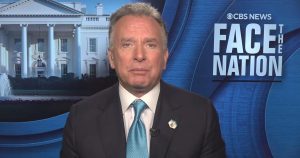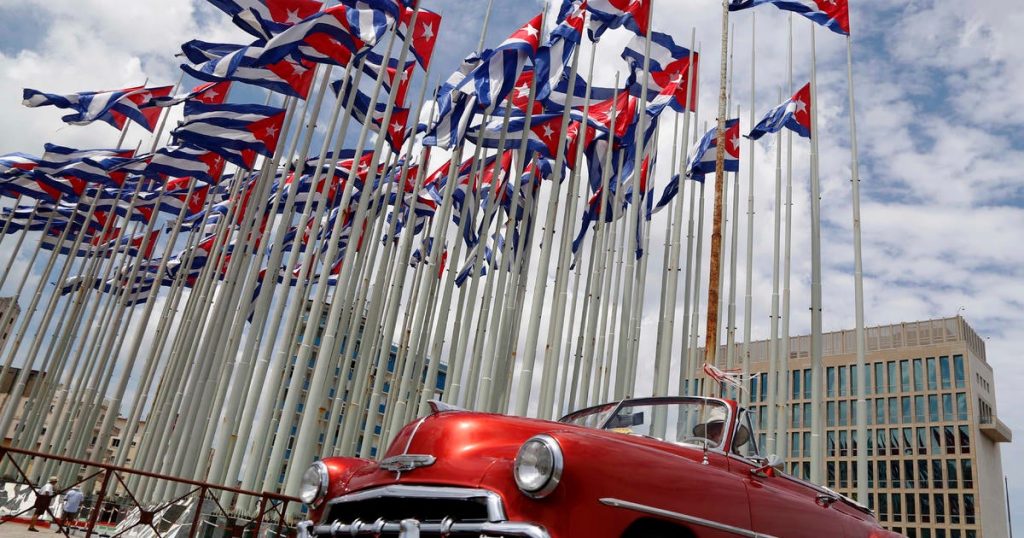Western Union Suspends Money Transfers to Cuba: A Complex Issue with Far-Reaching Implications
The decision by Western Union to suspend money transfers to Cuba has sent shockwaves through Cuban American communities, sparking a mix of emotions and reactions. This move comes in response to the U.S. State Department’s reinstatement of sanctions on Cuban military-run businesses, a policy reversal that has significant implications for families on both sides of the Florida Strait. For many Cuban Americans, remittances are a lifeline, providing essential financial support to loved ones struggling under Cuba’s economic challenges. However, for others, the decision is seen as a necessary step toward challenging the Cuban government’s authoritarian regime.
The Human Impact: Families Caught in the Crossfire
For Carolina Yarini, a Cuban American living in South Florida, the suspension of money transfers is deeply personal. She regularly sends $100 a month to her aunts in Cuba, money that is crucial for their basic needs. "I feel bad for me and for everybody else that sends money to their family," she shared with CBS News Miami. Yarini’s relatives, like many Cubans, depend on these remittances to survive, as the island’s economy continues to struggle under U.S. sanctions and domestic mismanagement. While Yarini supports the policy change, believing it could pave the way for greater freedom in Cuba, she acknowledges the immediate hardship it causes for families like hers.
Policy Reversal: A Shift in U.S.-Cuba Relations
At the heart of this issue is a policy reversal by U.S. Secretary of State Marco Rubio, who rolled back a decision by former President Joe Biden to ease sanctions on Cuban military-controlled businesses. Among the entities affected is FINCIMEX, a Havana-based financial company that processes money transfers to Cuba. Western Union, which relied on FINCIMEX to facilitate its services, can no longer operate in the country under the new restrictions. Orlando Gutierrez, leader of the Assembly of the Cuban Resistance, an anti-communist organization based in South Florida, believes this move weakens the Cuban government by cutting off a key source of revenue. "The weaker that regime is, the stronger the Cuban people will be in regaining their freedom," he said.
Western Union’s Response: Compliance with U.S. Regulations
Western Union has acknowledged the policy change and its implications, stating that it will comply with all applicable laws and regulations. In a statement to the Miami Herald, Brad Jones, a spokesperson for the company, said, "The company is aware of the U.S. State Department’s plans to reissue and update the Cuba Restricted List. We will comply with all applicable laws and regulations as it pertains to this list." The suspension of services has left many Cuban Americans scrambling to find alternative ways to send money to their families, further complicating an already difficult situation.
Mixed Reactions: A Community Divided
While the suspension of money transfers has caused significant disruption, opinions among Cuban Americans are divided. Some, like Yarini, believe the restrictions are necessary to undermine the Cuban government’s control and ultimately bring about change. "Most of the money goes to the dictatorship," she said. "It’s like you’re feeding a system." Others, however, argue that cutting off remittances harms the very people the sanctions aim to help. For many families, these transfers are a vital source of income, and their suspension could exacerbate poverty and hardship on the island.
A Broader Struggle: Freedom, Family, and the Future of Cuba
The suspension of money transfers to Cuba highlights the complex and deeply personal nature of U.S.-Cuba relations. While some view the move as a strategic step toward challenging the Cuban government’s authoritarian practices, others see it as a punitive measure that disproportionately affects ordinary citizens. As the situation continues to unfold, one thing is clear: the fate of millions of Cubans and their families hangs in the balance. For Carolina Yarini and countless others like her, the hope is that these sacrifices will one day lead to a freer, more prosperous Cuba. Until then, the struggle to support loved ones across the Florida Strait remains a daily challenge.















